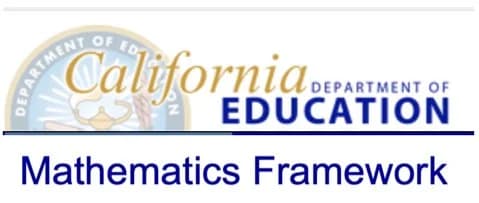California Math Framework Adopted Amid Concerns as 75% of Low-Income Black 11th Graders Miss Standards

California's State Board of Education officially adopted a new K-12 Mathematics Framework in July 2023, concluding a multi-year process marked by extensive debate over its approach to math education. The framework, intended to guide instruction and promote equity, has drawn significant criticism for potentially compromising academic rigor and exacerbating existing disparities in student achievement. Concerns are particularly acute given that, in the 2023–2024 school year, 75 percent of low-income Black 11th graders and 66 percent of low-income Hispanic 11th graders failed to meet the state’s math standards.
The controversial framework aims to make mathematics more accessible and relevant for all students, emphasizing a "common ninth-grade experience" for Algebra I and promoting courses like data science. Supporters argue these changes will broaden participation in higher-level math and address historical inequities by de-emphasizing early tracking. The framework is a guidance document, influencing instructional practices and materials statewide in California's large education market.
However, critics, including numerous STEM professionals and educators, contend the framework "waters down" math education. They argue that delaying Algebra I and making advanced courses optional could disadvantage high-achieving students and hinder their preparation for STEM careers and competitive university admissions. Stanford mathematics professor Brian Conrad has been a vocal critic, arguing that the framework's proposals center on "fake equity" rather than substantive improvements.
The framework's critics suggest it creates a two-tiered system, as highlighted by Katy Grimes in a tweet: > "For families who can write $60,000 tuition checks, opportunity is still on the table; for everyone else, the game is rigged." This sentiment underscores fears that affluent families will increasingly opt for private education, where accelerated math tracks remain available, leaving public school students from less privileged backgrounds at a significant disadvantage.
Further complicating the framework's equity goals, the University of California system's faculty committee recently voted to end a policy allowing high school data science courses to count toward its math requirement. This decision reflects concerns that these courses, as currently structured in high schools, may not provide sufficient mathematical content to prepare students for college-level STEM studies. The ongoing debate underscores the profound challenges California faces in balancing equity with academic excellence in its public education system.